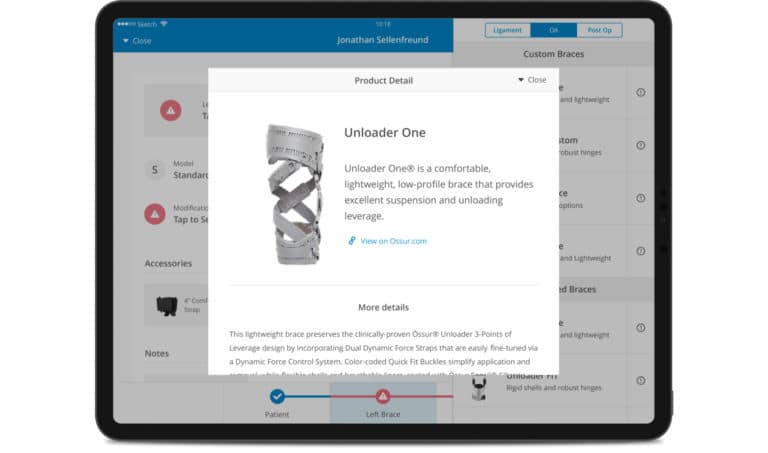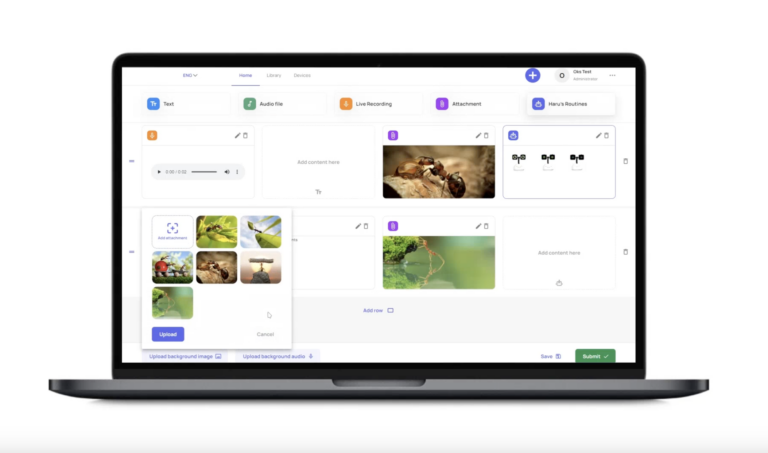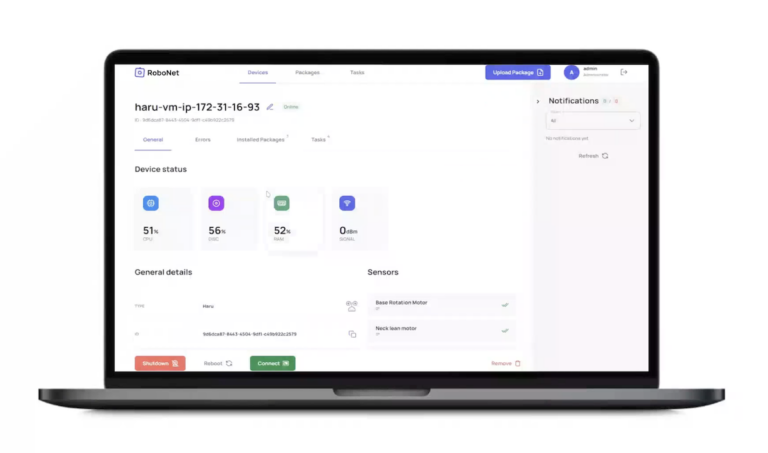Reasons to Have a Chatbot in Real Estate and Top 10 Use Cases
If you operate in real estate, you probably know this business’s pain points. Apart from presenting homes and arranging meetings, realtors regularly get caught up in assembling data and feedback, handling questions, and drafting reports. They should also measure business results and market trends and maintain relationships with past clients. However, they don’t have to do all of this themselves. Numerous parts of such processes can be automated using real estate chatbots. Need more insights? Then read further – this article explains the benefits of a chatbot for real estate industry and their use cases based on our experience in AI chatbot development.
Table of Contents
Chatbots in Real Estate and its Major Types
Real estate chatbots are software programs developed to simulate conversation and assist potential buyers, sellers, and renters in their property search. These virtual assistants can operate on any online sources like websites, mobile apps, and messaging platforms like Facebook Messenger or WhatsApp. They can:

200+ companies from 25 countries outsourced software development to Relevant
We provide companies with senior tech talent and product development expertise to build world-class software. Let's talk about how we can help you.
Contact us- Answer basic questions: price range, location, amenities, etc.;
- Schedule property viewings;
- Qualify leads: gather contact information and assess buying/selling readiness;
- Personalize recommendations: based on user preferences and search history;
- Provide market updates and relevant news;
- Transit the conversation directly to an agent or sales assistant;
- Send emails or messenger notifications whenever prospects show an interest, etc.
What are the Types of Chatbots for Real Estate?
These chatbot examples for real estate can be employed in business processes, each with unique capabilities.
Rule-Based Chatbots
These chatbots adhere to specific, pre-established rules. They are great at answering frequently asked questions or scheduling appointments. Although they have difficulty handling complex questions or nuanced language, their simplicity makes them suitable for basic customer service tasks.
AI-Powered Chatbots
Chatbots enhanced with AI apply machine learning and natural language processing. That allows them to grasp and react to user inputs more dynamically. This chatbot for real estate can handle a more natural, flowing conversation, unlike their rule-based relatives. These can learn from interactions, improving their performance over time.
Voice-Enabled Chatbots
This is the next evolution in chatbot technology. These tools use voice recognition technology to engage with users, providing a hands-free, conversational experience. They are ideal for users who are too busy to type and prefer speaking directly to the bot. With advancements in speech recognition, these are becoming an increasingly popular choice for real estate businesses looking to deliver superior customer service.
Benefits of Using a Chatbot for Real Estate
With the ability to automate boring tasks and improve customer relationships, a chatbot for real estate agents is a godsend for the industry. To confirm this, we will detail a variety of benefits that it brings for both real estate professionals and their clientele.
For Agents:
- Round-the-Clock Service: Say goodbye to missed opportunities. Chatbots are on standby 24/7, ensuring every potential client gets immediate assistance, even when you’re off the clock.
- Efficient Lead Handling: The chatbot for real estate constantly engages with site visitors, fields their queries, and collects essential data. That means you get leads already warmed up and ready for your expertise.
- Boost in Conversions: Chatbot for real estate sales helps maintain a steady conversation with leads, answering their queries, arranging viewings, and offering tailored suggestions. This consistent engagement translates to higher conversion rates.
- Streamlined Operations: Chatbots handle the monotony of responding to FAQs and basic queries, allowing agents to focus on more complex activities like closing deals and providing personalized consultations.
- Improved Online Presence: Having a chatbot for real estate active on your website or social media profiles enhances your digital footprint and positions you as a forward-thinking, tech-embracing professional.
For Clients:
- Immediate Responses: Nowadays, users are more impatient than ever before. But with chatbots, their queries will be answered instantly, any time of day. That means no delays or waiting for email responses or callbacks.
- Easy and Flexible: Clients can enjoy exploring listings, setting up viewings, and accessing property information conveniently.
- Customized Assistance: Chatbots adapt to users’ preferences, suggesting properties that align with their needs and budget.
- Stress-Free Exploration: Customers explore and educate themselves independently, free from the direct influence of a sales representative, thereby minimizing possible stress. Around 20% of Generation Z users favor initiating their customer service interaction with a chatbot for real estate, transitioning to a real person when necessary.
- Accessible Information: Chatbots provide a wealth of information, from detailed property insights to the latest market trends, all readily available for the users’ needs.
Additional Advantages of Chatbots:
- Multilingual Support: They broaden your reach by communicating in multiple languages.
- Data-Driven Insights: They gather valuable feedback and data to continuously enhance your customer experience.
- Seamless Integration: They easily integrate with your existing real estate tools and platforms for a more cohesive workflow.
- Cost Savings: In 2023, chatbots saved the banking, healthcare, and retail sectors up to $11 billion.
Top 10 Use Cases of Chatbots in Real Estate
How to use chatbot for real estate, you’ll ask? Well, you can do a lot with it. Here’s a look at the top 10 ways chatbot development for real estate makes a difference:
Property Search Assistance
Chatbots serve as personalized guides that identify user preferences like location, budget, property type, and amenities. They then offer personalized property suggestions matching these criteria.
Lead Generation
These digital assistants engage with visitors to gauge intent to buy or sell and their budget, effectively categorizing and prioritizing leads for higher conversion potential.
Customer Support and FAQs
They can answer common queries about listings, open houses, and the buying or selling process, providing support 24/7, even outside of standard agent working hours.
Virtual Property Tours
Chatbots can guide users through 3D virtual property tours, highlighting features, answering questions, and allowing self-paced exploration.
Mortgage and Financing Information
They simplify complex mortgage concepts, pre-qualify buyers, and connect them with relevant financial advisors.
Appointment Scheduling
For appointment scheduling, chatbots allow clients to book viewings, meetings with agents, and other appointments directly. Chatbot for real estate can even synchronize the schedules of clients and agents, finding convenient appointments for both parties.
Market Trends and Insights
Offering real-time market updates, personalized analyses, and advice, a chatbot for commercial real estate helps clients make informed decisions.
Property Valuation
Using advanced algorithms, AI chatbots for real estate estimate property values based on market data and characteristics, advise on asking prices, and help buyers understand market values.
Tenant and Landlord Support
They assist in maintenance requests, rent payments, and landlord communication, aiding landlords in tenant screening, property management, and streamlining issue resolution.
Localized Information
Chatbots provide detailed neighborhood information, recommend local attractions, and help users understand the local community and lifestyle.
Source: Helpcrunch
Implementing a Chatbot for Real Estate Business: A Step-by-Step Guide
You’ve got two options: develop your chatbot from scratch (the hard way), or a low-to-no code chatbot platform (the easier way).
Option 1. Building your own chatbot from scratch
Pros:
- Maximum customization: You have complete control over the chatbot’s functionality, personality, and conversation flow.
- Highly integrated experience: You can seamlessly integrate the chatbot with your existing systems and tools.
- Potential cost savings in the long run: Developing your chatbot can be more cost-effective if you have the technical expertise.
Cons:
- High technical expertise required: Building a sophisticated chatbot requires knowledge of programming languages, AI, and natural language processing (NLP). (Here, you will probably need a software development partner).
- Significant time investment: Developing and testing a complex chatbot can take months or even years.
- Vendor lock-in: You may depend on the vendor to maintain and update your chatbot.
Option 2. Using a low-to-no code chatbot platform
Pros:
- Ease of use: Most platforms offer drag-and-drop interfaces and visual tools, making them accessible even for non-technical users.
- Faster implementation: You can launch your chatbot within weeks or even days without lengthy development cycles.
- Cost-effective: Numerous platforms provide budget-friendly subscription options, ensuring accessibility even for small-scale businesses.
- Pre-built templates and features: You can find options with templates and features specifically designed for real estate chatbots.
Cons:
- Limited customization: While you can customize the chatbot’s look and feel, the platform likely won’t offer the same level of control over functionality as building it from scratch.
- Potential platform limitations: Some platforms may have limitations in terms of features, scalability, or integration capabilities.
- Ongoing maintenance and updates: You’ll be responsible for maintaining and updating the chatbot as technology evolves.
Let’s say you take the easy route and decide to add a white label chatbot for real estate. Then your strategy will include steps like:
Defining Your Goals
To effectively implement a chatbot for your real estate business, start by evaluating your needs, such as business size, customer interaction volume, and specific features like language support and integration capabilities.
Choosing the Right Platform
Choose a platform that is easy to use and doesn’t demand great technical skills but still has the capability to evolve alongside your business. Make sure it seamlessly integrates with your current systems, such as CRM and property listings, while focusing on compliance and data protection.
Designing Your Chatbot’s Persona
Design your chatbot to reflect your brand, giving it a unique name and personality. We recommend developing a natural conversation flow, avoiding technical jargon and script responses for common queries.
Training and Testing Your Chatbot
Enhance your chatbot by meticulously refining its conversation scripts. You must ensure it comprehends the nuances of your audience’s language, including slang, regional terms, and industry-specific jargon. Also, we recommend regularly conducting tests simulating real-world interactions to identify and correct any misunderstandings or inadequate responses.
Launching and Monitoring Your Chatbot
Once launched, deploy your chatbot on various digital platforms such as your website, social media, and messaging apps. Continuously collect and analyze user feedback to make data-driven improvements, ensuring the chatbot evolves to meet user needs and preferences effectively.
By following these steps, you can successfully integrate a chatbot that brings added value to your real estate firm and ensures superior client interaction.
Chatbot for Real Estate: Final Thoughts
Over the past decade, as evidenced by Google Trends data, public interest in chatbots has quadrupled. As individuals grow increasingly accustomed to virtual assistants adept at responding to queries and conducting online searches, the initial interaction with chatbots becomes a norm before engaging with a human.
This shift need not be perceived negatively. By using chatbots wisely, real estate agents can assess how serious a lead is and better prioritize their sales pipeline — all while delivering the high-quality information prospects want. This will definitely benefit the business.
Keeping these aspects in mind, Relevant can support you in deploying ready-to-use chatbots. Yet, to speak frankly, it is more practical to design a chatbot specifically for your unique processes than to waste resources on unnecessary functionalities or search for missing pieces in pre-packaged software. In the end, whatever option you decide on, we are available to assist you. You just need to contact us.
Our core services:
Do you want a price estimate for your project?
Do you know that we helped 200+ companies build web/mobile apps and scale dev teams?
Let's talk about your engineering needs.
Write to us











